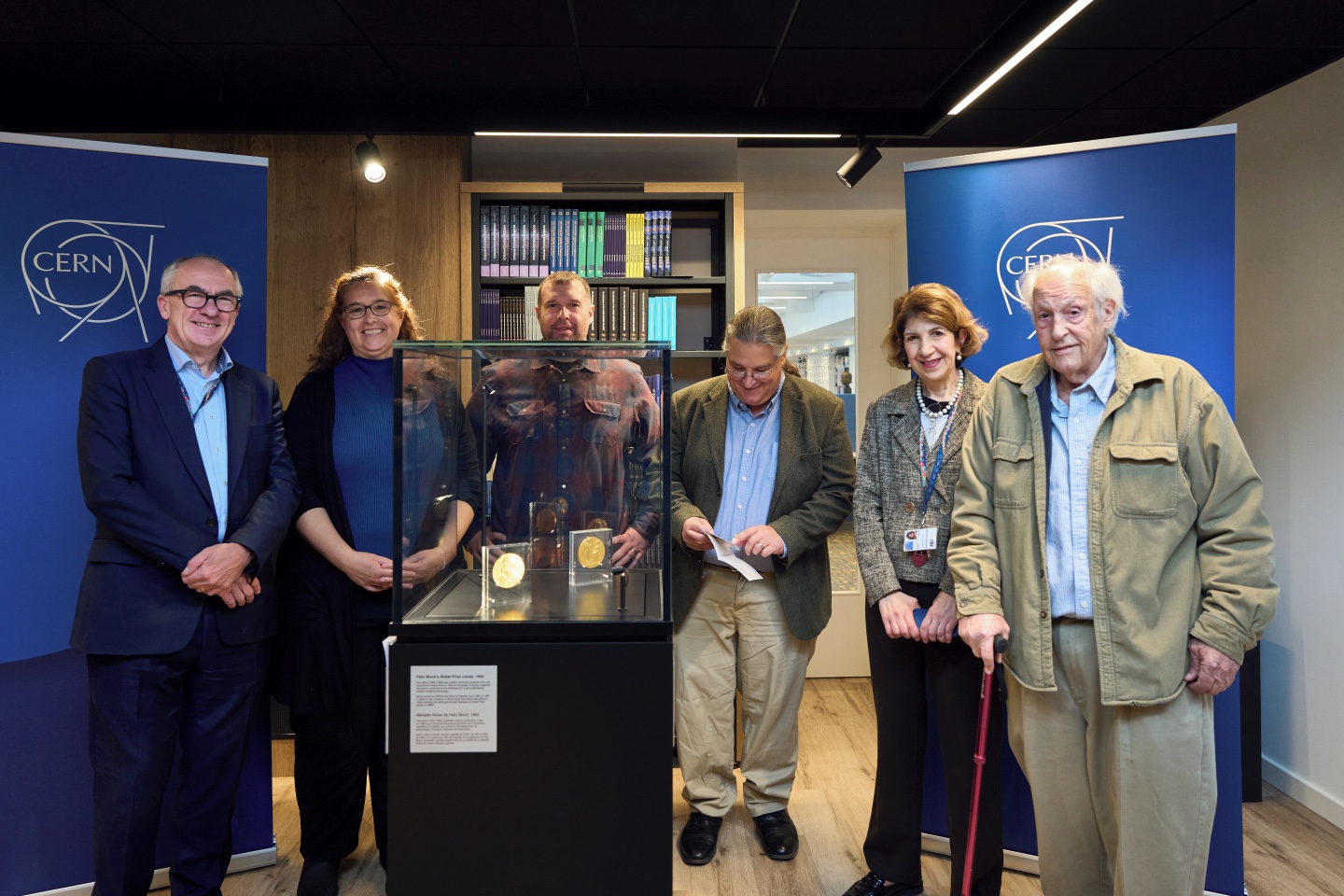On 14 October, CERN unveiled the Nobel medal of Felix Bloch, generously donated by Bloch’s family on the 120th anniversary of the physicist’s birth. Now part of the CERN archives, this medal will be on permanent display at the CERN Library (building 52, first floor), alongside the Nobel medal of Wolfgang Pauli.
Felix Bloch (1905–1983) was the first Director-General of CERN from 1954 to 1955. He is known for his work on nuclear induction, winning the 1952 Nobel Prize in Physics for the “development of new methods for nuclear magnetic precision measurements”. This work not only contributed significantly to the field of physics, but also revolutionised diagnostic medicine.
Wolfgang Pauli received the 1945 Nobel Prize in Physics for his reformulation of the exclusion principle, which governs the coexistence of particles such as the electron. When he was still only a student, Bloch worked as Pauli’s assistant from 1928 to 1929. Franca Pauli, Wolfgang Pauli’s widow, donated her husband’s personal archives to CERN in 1960 and 1971.
The unveiling ceremony took place in the CERN Library in the presence of one of Bloch’s sons and three of his grandchildren, as well as members of the CERN Directorate. In her speech, Director for International Relations Charlotte Warakaulle thanked the Bloch family for its donation, echoing the feelings of optimism and faith in fundamental science expressed by Felix Bloch when CERN was founded.
“We are truly honoured that the Bloch family has chosen to entrust CERN with the Nobel medal that was awarded to Felix Bloch,” Warakaulle declared. “We hope that the Nobel medals of Felix Bloch and Wolfgang Pauli, displayed right here at the CERN Library in the heart of the Laboratory, will spur on the next generation of physicists to also set their ambitions high by giving them the courage, commitment, dedication and enthusiasm necessary to succeed.” To quote Bloch himself: “we can be sure that this challenge will be met”.

